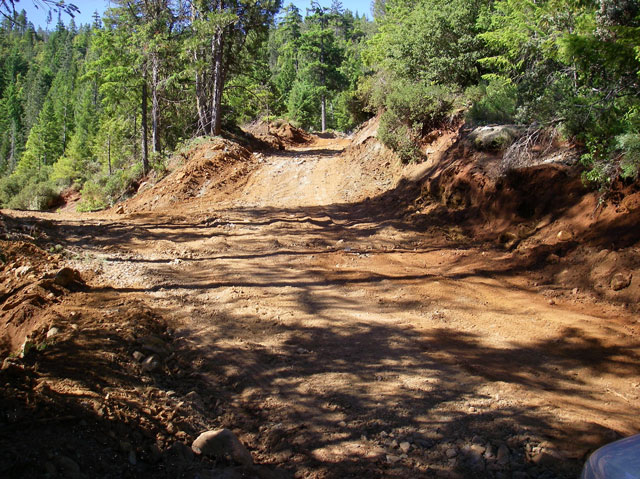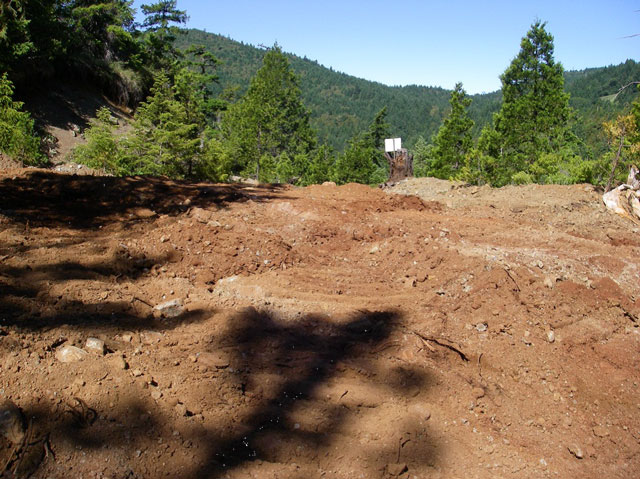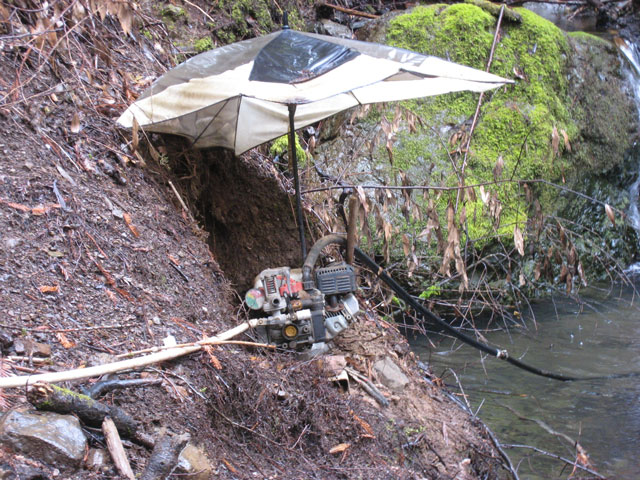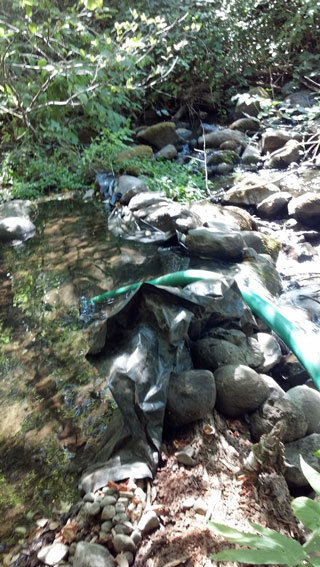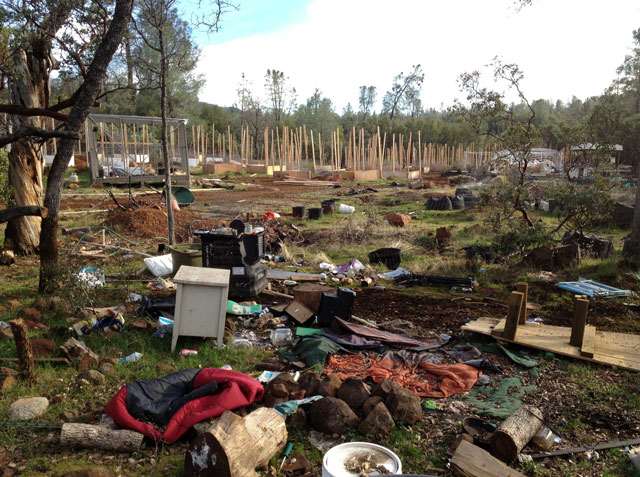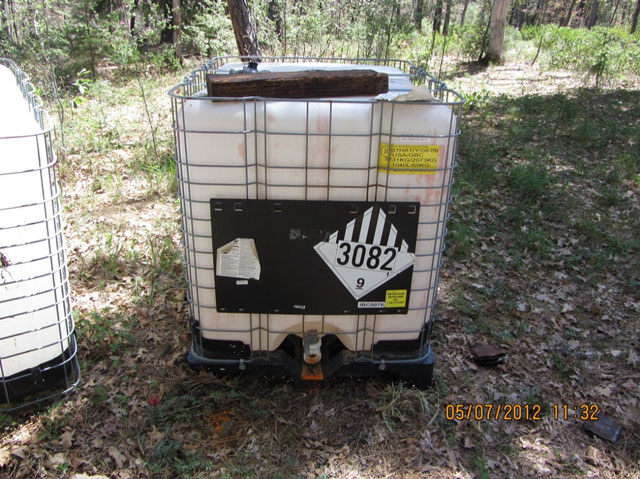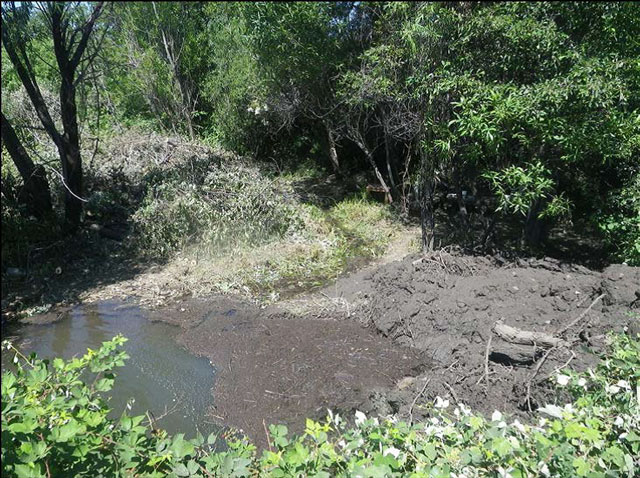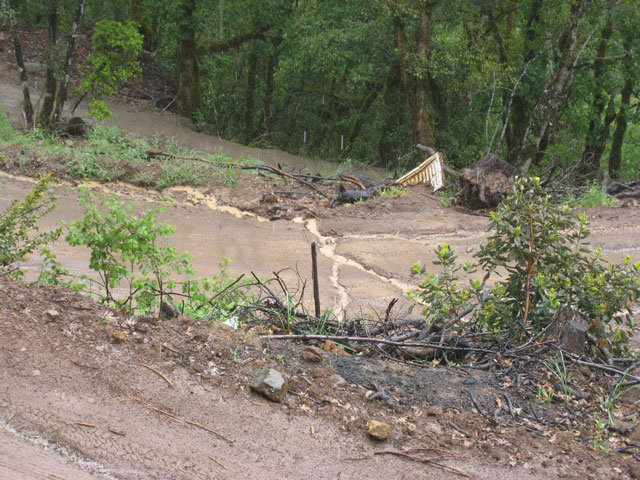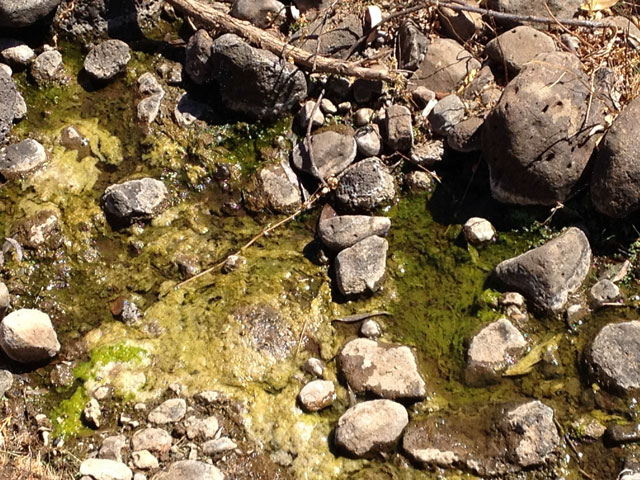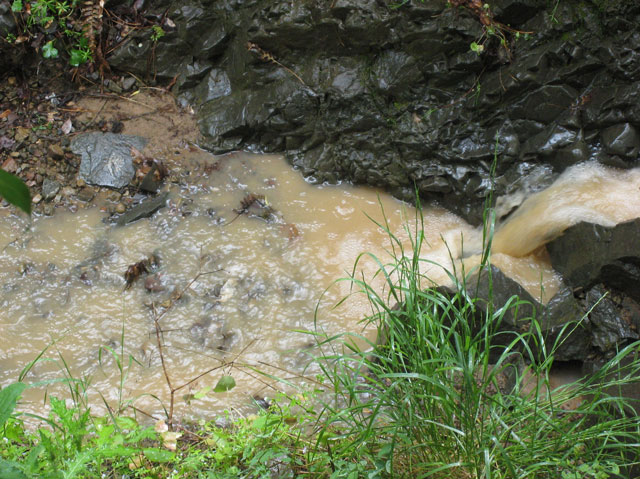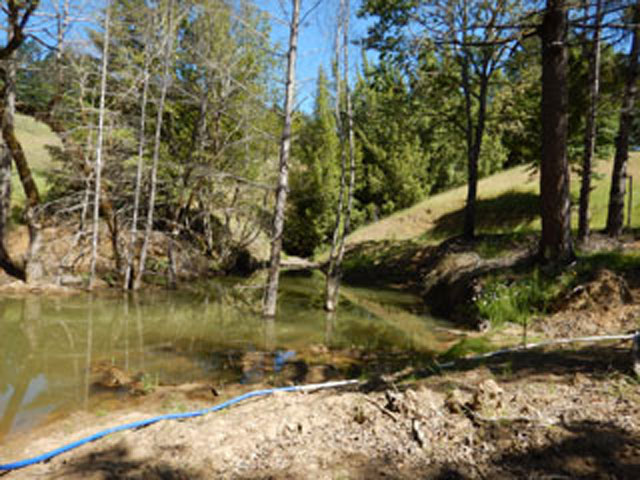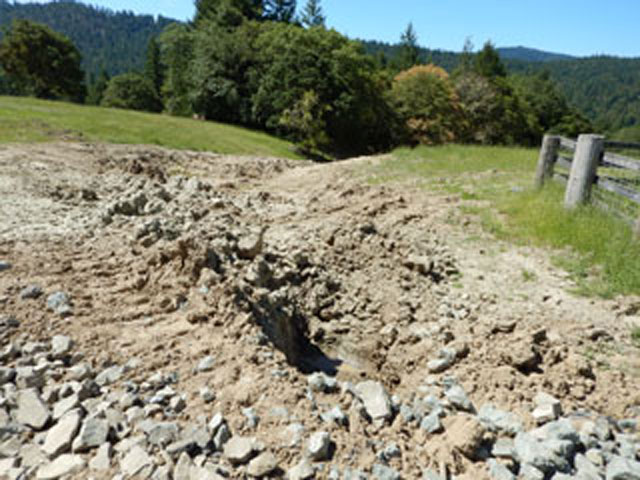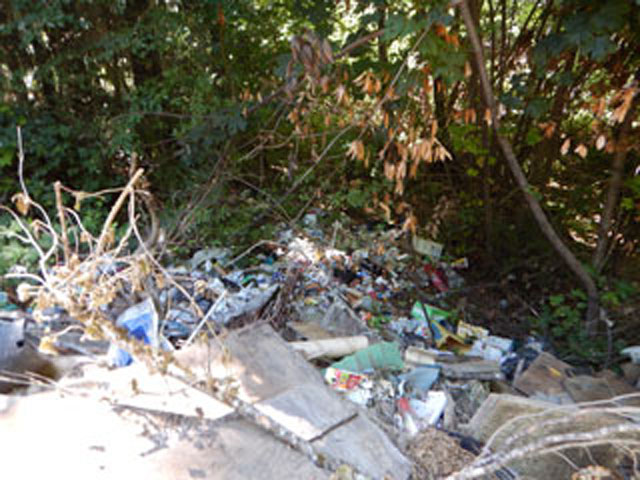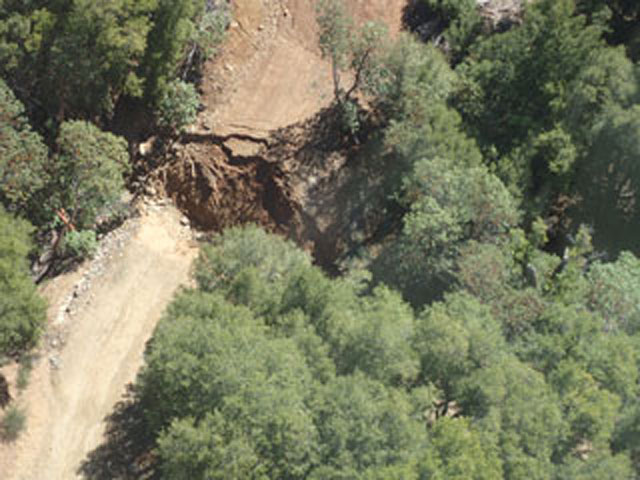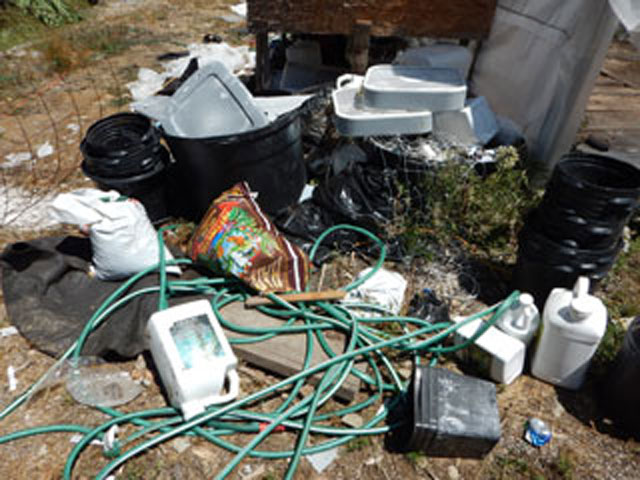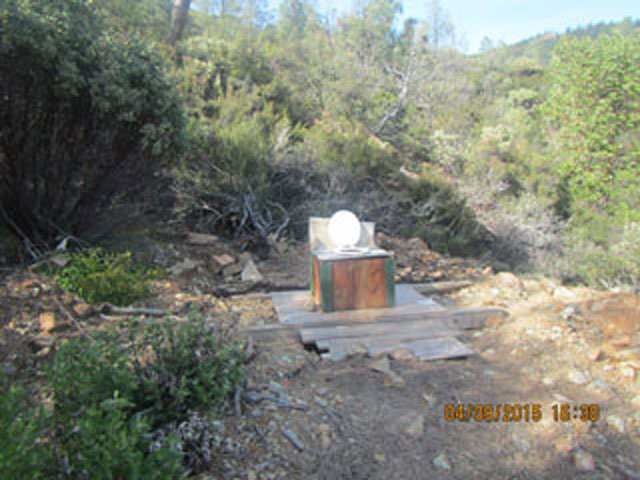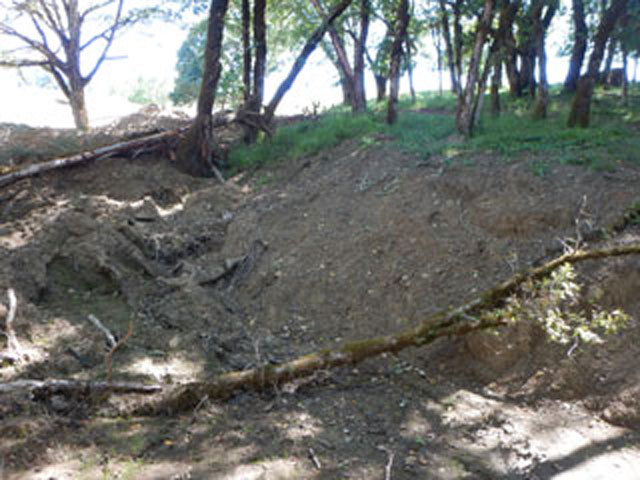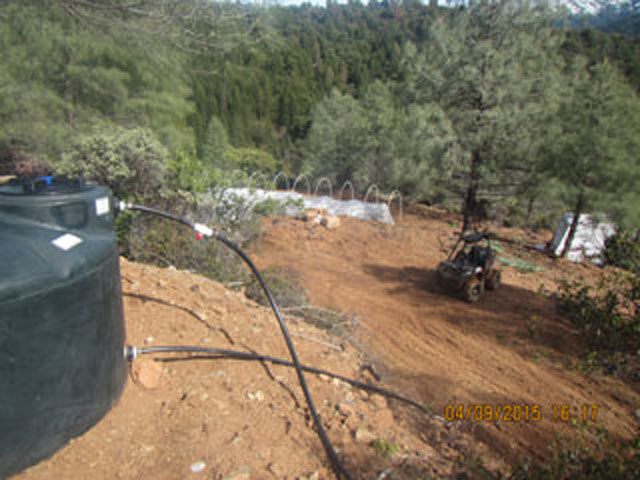Cannabis Enforcement Unit
The Office of Enforcement’s Cannabis Enforcement Unit (CEU) is comprised of scientific, geological and engineering staff capable of specialized inspection and enforcement investigations of water quality impacts for permitted and unpermitted cannabis cultivation sites under the Water Board’s Cannabis Cultivation program. CEU conducts or advises on technical and investigative initiatives to ensure fair, firm, consistent, and transparent enforcement of aspects of the Cannabis Cultivation Regulatory Programs, consistent with the Water Quality Enforcement Policy.
As a technical unit within the State Water Board’s Office of Enforcement, CEU is closely associated with the Office of Enforcement’s Legal Unit. This provides for robust knowledge of legal requirements associated with inspections and enforcement and allows for close technical and legal collaboration on compliance assistance, informal enforcement, and formal enforcement actions.
Additionally, CEU participates in interagency coordination with the California Department of Fish and Wildlife, the California Department of Food and Agriculture, and local governments on environmental inspection and enforcement initiatives related to cannabis cultivation.
Environmental Harm from Cannabis Cultivation
The Water Boards are concerned with the diversion and use of surface water and waste discharges that could harm the waters of the State. The following activities and environmental impacts are associated with cannabis cultivation:
- Water Supply Issues: Illegal diversions and diverting a stream that harms beneficial uses and/or senior water rights holders.
- Erosion and Sediment: Poorly maintained and constructed roads and excavation/development of cultivation areas are a major source of sediment pollution from soil erosion. Significant rain events can cause mass sedimentation and large-scale erosion. Sediment increases negative impacts to endangered fish species (salmonids) that cannot tolerate high water levels of suspended solids. Sedimentation fills in fish spawning and aquatic organism habitat.
- Wetland and Riparian Impacts: Draining a wetland, placing fill or excavating water-logged soils from a wetland; removing vegetation from the riparian corridor of a stream; and removing the tree canopy that provides shade to maintain the stream's temperature.
- Soil Additives: Potting soil and mulch, amendments, fertilizers, and pesticides are stored improperly (outdoors and directly on the ground) or improperly applied, mobilized by runoff and discharged into surface waters.
- Housekeeping, Trash, and Human Domestic Waste: Large scale cannabis cultivation operations typically generate household garbage, fuel and chemical containers, and other hazardous waste often left at abandoned sites. Human waste that is not properly collected and/or treated can contaminate nearby water supplies with bacteria and other pathogens.
- Unpermitted Timber Conversion: Cannabis cultivators often do their own clear cutting to develop an open space for their grow sites without obtaining the appropriate permits or considering the environmental impacts. This results in deforestation and increased erosion due to loss of vegetative cover.
Discharge of waste to waters of the State without a permit and/or any diversion and use of water without an appropriate water right may be subject to enforcement and possible penalties.
Resources for Cannabis Cultivation Industry
- Cannabis Priority Watersheds
- Watershed Best Management Practices for Cannabis Growers and other Rural Gardeners (Mendocino County Resource Conservation District)
- Handbook for Forest, Ranch & Rural Roads (For the Mendocino County Resource Conservation District)
- Licensed Water Haulers by County
- Best Management Practices for Growers Flier
- Mejores Metodos de Gestion para el Cultivo de Marihuana
- Cannabis Pesticides That Are Legal To Use
- Cannabis Pesticides That Cannot Be Used
Subscribe to our Cannabis Cultivators email list to receive notifications and the latest updates. After subscribing, you will need to check your email host for a confirmation email to complete the subscription.
Contacts
- State Water Resources Control Board
Office of Enforcement
(916) 341-5272
OECannabis@waterboards.ca.gov
State Water Board - Cannabis Cultivation Department Links
Report an Environmental Concern
Cannabis Cultivation Related Fact Sheets
- Fact Sheet, Indoor Cannabis Cultivation, Dec. 1, 2017
- Fact Sheet, State Water Board’s Cannabis Regulatory Online Portal
- Fact Sheet, Onstream Reservoir
- CDFW Lake or Streambed Alteration Agreement Fact Sheet
- CDFW Commercial Cannabis Cultivation Licensing Fact Sheet
- Pest Management Practices for Cannabis Cultivation


